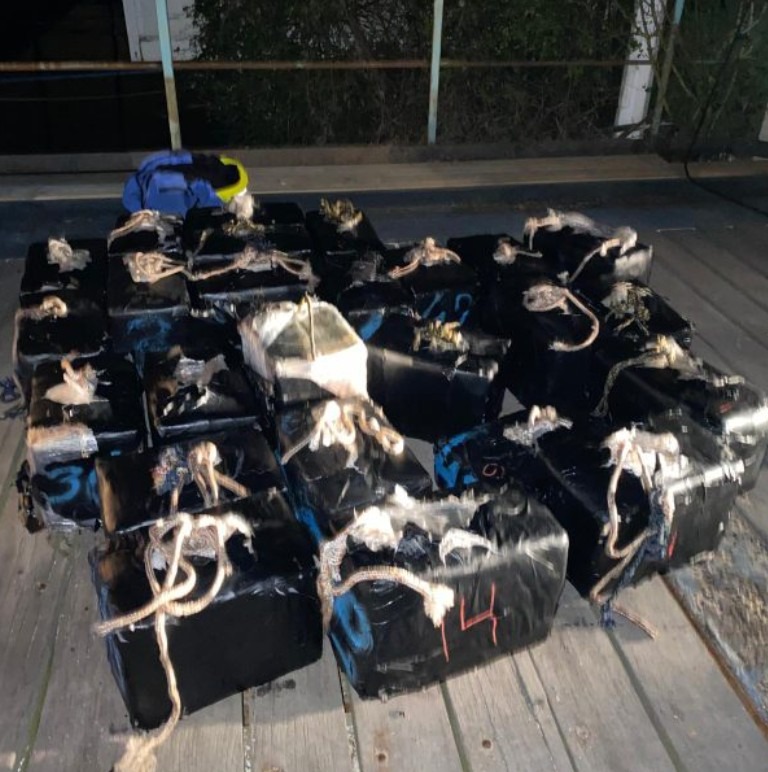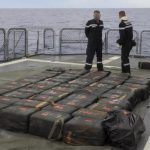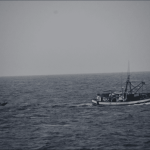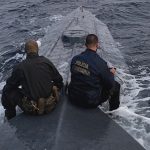A large-scale international operation has led to the seizure of 630 kg of cocaine, the coast of northern France. The drugs were transferred at sea using the “drop off” method, involving a cargo vessel from Brazil and smaller vessels operated by French nationals.
The successful operation was the result of a long investigation by French authorities, supported by MAOC (N) and in close coordination with the UK’s National Crime Agency.
The operation uncovered the use of the “drop off” method, whereby cocaine is transported across the Atlantic aboard a cargo vessel before being covertly transferred at sea to smaller boats near European coastlines.
French authorities tracked both the cargo vessel, which was coming from Brazil, and a local fishing vessel that had departed from Normandy. Surveillance confirmed that the transfer of drugs took place several nautical miles offshore, where bales of cocaine were passed from the larger cargo vessel to the fishing boat under the cover of night.
The fishing vessel then returned towards the French coast and transferred the cargo once more to a go-fast, which headed to the port of Tancarville. Coordinated police operations were launched overnight on 3–4 April, leading to the arrest of six men. Additional arrests were made at sea and on land.
Simultaneously, the cargo vessel was diverted to Dunkirk under judicial orders, where it was thoroughly searched. MAOC (N) played a key role in liaising with UK authorities, who had expressed interest in the vessel but agreed not to intervene so as not to compromise the French operation.
Three crew members from the cargo ship were taken into custody. In total, 11 individuals have been formally charged, with several placed in pre-trial detention.
This marks France’s first successful interception of this transatlantic “drop off” trafficking method, which has become increasingly common along European coastlines. It underscores the essential role of international coordination in maritime law enforcement.







